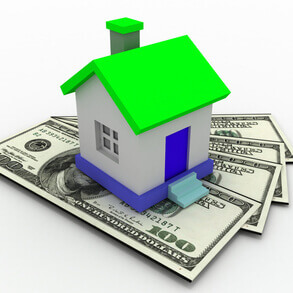Property Taxes and Real Estate Investment

Best Areas to Invest; Property Taxes and Other Considerations
When it comes to taxes, all properties are not created equal. Different locales have different tax rates, and, depending on which state and county you live in, you can pay vastly more in taxes than someone else with the same property size, type, and features. In some cases, even two homeowners with similar houses in the same immediate area can have very different tax rates.
It’s essential for investors to take property taxes into account, and factor them into their bottom line. It’s also important to know what tax exemptions you’re entitled to, and how your tax standing may change over the next year (tax hikes, new tax breaks, expiring exemptions, etc.) so that you can plan accordingly, and determine how your property’s resale value and marketability may be affected.
So, how do the property taxes in your locale stack up to those in the rest of the nation?
To help answer that question, CNN recently published a map that simply and clearly illustrates property tax rates in over 3000 counties across the country. The data was collected between 2007 and 2011, and reflects some interesting trends.
When calculated in dollar amounts, the coastal areas of Southern California, Oregon and Washington, the counties surrounding the Great Lakes in Michigan, Illinois and Wisconsin, the coastal areas of New England, including New York, New Jersey, New Hampshire, Rhode Island, Massachusetts and Connecticut, and the southernmost coastal edge of Florida have some of the nation’s highest property taxes – likely due to in-demand waterfront locations.
However, when we look at property taxes in terms of percentages of the total property price, the map shifts a bit. California, Oregon, Washington, Rhode Island, Massachusetts and South Florida actually have low to moderate property taxes in proportion to home prices. Meanwhile, nearly all of New York and New Hampshire, most of Illinois and Wisconsin, a good deal of Nebraska, Kansas and Texas, and a sizable number of counties in North and South Dakota have high property tax rates relative to home prices.
Of course, high property taxes – even when compounded with high home prices — don’t necessarily doom a property’s investment potential. Many other factors can mitigate high property taxes, including a coveted location, high job availability, proximity to downtown areas, available transportation, a low cost of living, a proximity to great schools, and lower property prices.
The bottom line? There are many factors to be considered when deciding whether to invest in a property, and taxes should not be left out of the mix. Do your homework, and investigate property taxes to avoid unnecessary hidden costs, whether by setting your sites on a different county, or by factoring the costs into your budget to ensure your choice is profitable.
Need more advice on where or how to invest? Reach out to one of our Coaches with many years of Real Estate experience Today! CLICK HERE to book an appointment.